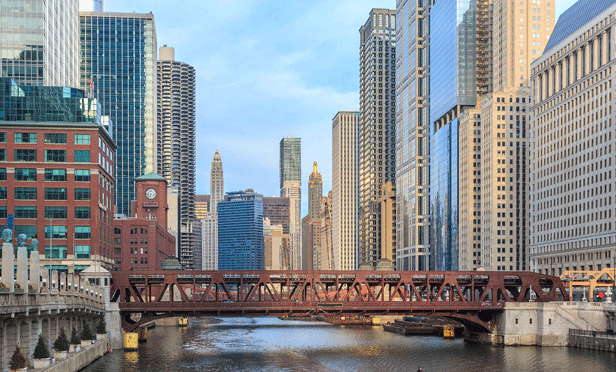CHICAGO—John W. Baird, a prominent Chicago real estate developer, suffered a stroke earlier this month and died on December 27 in a Glenview hospice. He was 98.
Baird spent much of his life championing causes such as fair housing, open space and historic preservation, even though much of this work was at odds with his personal financial interests. This selfless dedication prompted architect Laurence O. Booth, with whom he worked on many projects, to call him "the ultimate American, the Gary Cooper of real estate."
A longtime resident of Winnetka, Baird received a history degree from Wesleyan University in Middletown, CT, in 1938 and a master's degree in business from Harvard University in 1940 before serving as an Army captain during World War II.
He then joined Baird & Warner, the venerable Chicago real estate company owned by his family since 1860. In 1963, he succeeded his father, Warner G. Baird, as president and began opening sales offices throughout the metropolitan area and expanding its commercial mortgage operation.
Baird was president of the company until 1991, when his son, Stephen W. Baird, took over day-to-day operations. Baird did, however, serve as chairman of the board until shortly before his death. The company currently operates 23 brokerage offices with sales of more than $5 billion annually in northern Illinois.
In the 1960s, Baird was president of the Metropolitan Housing and Planning Council and helped lead efforts to combat racial and other forms of discrimination in Chicago housing. He sometimes took professionally risky actions to promote open housing. In 1962, for example, he appeared before the Chicago City Council and called for an open-housing ordinance, a measure strongly opposed by some of his fellow members of the Chicago Real Estate Board.
The ordinance passed in 1963 and barred discrimination in real estate sales "against any person because of his race, color, religion, national origin or ancestry," although de facto discrimination in the real estate world against blacks, Hispanics, Jews and other minorities continued for years. In 1965, Baird resigned from the Real Estate Board to protest its discriminatory policies. Baird later discounted any talk of his bravery in taking a stand against discrimination. He would say he merely did "the right thing."
Baird helped start several groundbreaking urban revitalization projects, including Willow-Dayton in Lincoln Park; Campus Green on the Near West Side; South Commons near the Illinois Institute of Technology; and other projects on the South and West Sides. He also pioneered the redevelopment of Printers Row, where he did the city's first loft conversions in the Transportation Building at 600 S. Dearborn St.
Continue Reading for Free
Register and gain access to:
- Breaking commercial real estate news and analysis, on-site and via our newsletters and custom alerts
- Educational webcasts, white papers, and ebooks from industry thought leaders
- Critical coverage of the property casualty insurance and financial advisory markets on our other ALM sites, PropertyCasualty360 and ThinkAdvisor
Already have an account? Sign In Now
© 2024 ALM Global, LLC, All Rights Reserved. Request academic re-use from www.copyright.com. All other uses, submit a request to [email protected]. For more information visit Asset & Logo Licensing.








